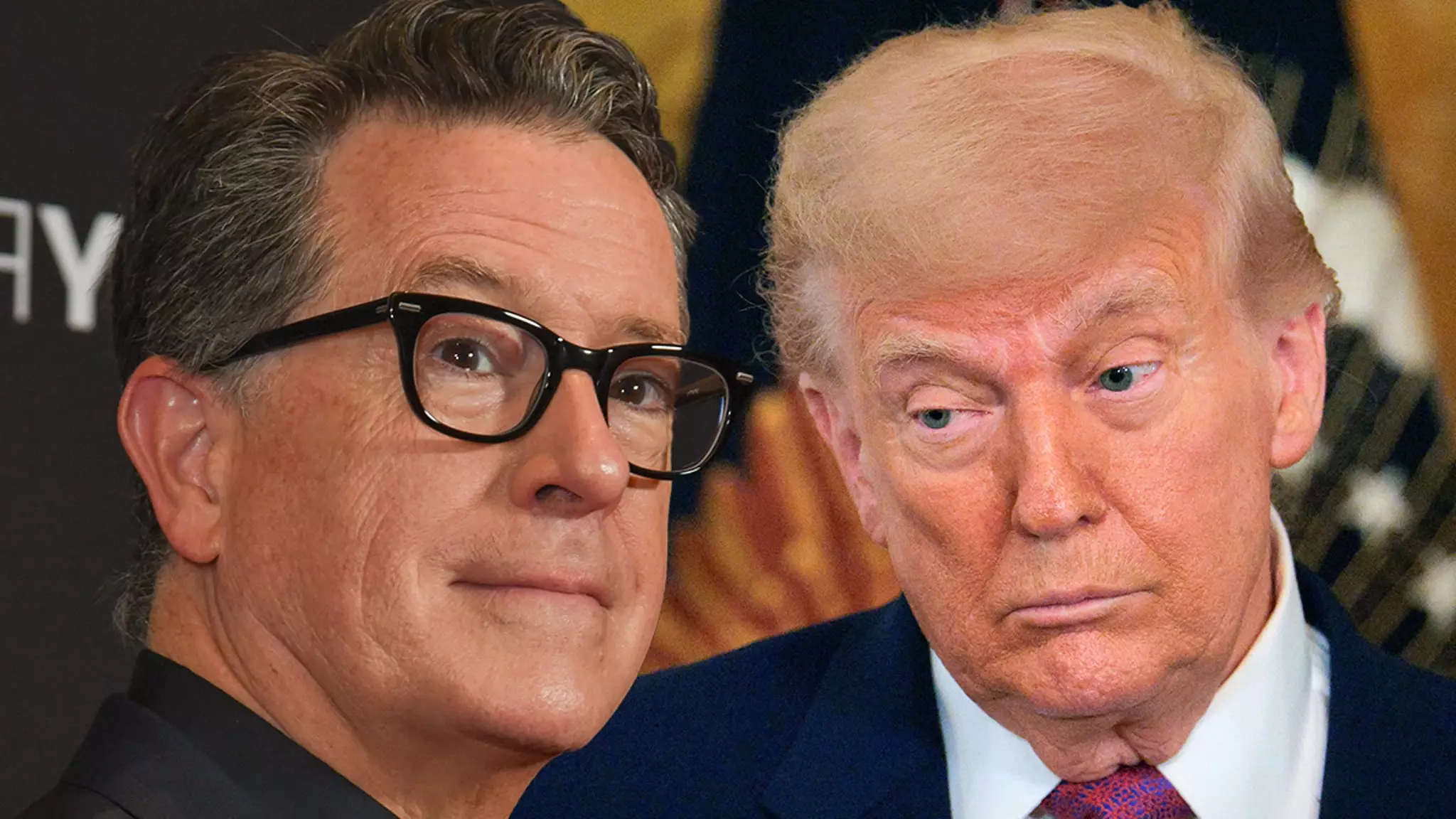In a startling display of raw emotion and unapologetic candor, Stephen Colbert used his platform to confront not only political frustrations but the deeper malaise infecting American institutions. His fiery tirade against Donald Trump, punctuated by a candid curse, exemplifies a rare moment of theatrical authenticity in late-night comedy. Colbert’s decision to abandon the usual veneer of politeness signals a fearless rejection of the culture of self-censorship that increasingly dominates media landscapes. His declaration—”I can finally speak unvarnished truth to power”—resonates profoundly in an era where institutional capitulation has become the norm. This is not merely about personal expression; it is about staking a moral claim against a societal backdrop riddled with silence, complicity, and fear.
His pointed critique of Trump—”Go f*** yourself”—may seem coarse, but it underscores a fundamental truth: the political landscape is in turmoil, and comedians like Colbert are grappling with the moral duty to challenge it. This moment reflects more than a personal outburst; it symbolizes a collective awakening among media figures who are tired of pretending that political corruption and abuse of power are acceptable. Colbert’s rhetoric, while stark, is a wake-up call, forcing viewers and institutions to confront the unvarnished realities of American politics. His declaration of “gloves are off” signifies a transformative shift—no more decorum, just unfiltered truth in the face of entrenched authority.
Corporate Hypocrisy and the Destruction of Public Discourse
Colbert’s critique extends beyond politics into the corridors of corporate influence that have come to dominate American media. He lambasted CBS’s parent company, Paramount Global, over a $16 million settlement with Trump—an “extortion fee,” as he described it. Such an analogy is provocative but insightful; it highlights the corrosive effect of monetary influence on journalistic independence and integrity. When political and corporate interests intersect, the free exchange of ideas becomes compromised, surrendering to the allure of quick cash rather than honest reporting.
This corporate retreat from dissent reflects a broader trend in which entertainment giants prioritize profits over accountability. CBS’s claim that the ending of “The Late Show” is driven by financial necessity appears hollow in Colbert’s eyes. His suggestion that it is, instead, a consequence of the political climate—a climate intentionally stifled by fear and compromise—raises crucial questions about the future of American dialogue. When institutions choose silence over resistance, they facilitate a dangerous normalization of authoritarian tendencies, effectively handcuffing free speech under the guise of financial stability.
The Political Climate and the Erosion of Courage
Colbert’s outrage must be understood within the context of the current political landscape, which has become increasingly hostile to dissent. His reference to “public hair-doodling commander-in-chief” may seem vulgar but it encapsulates the frustration of a society that feels powerless against an autocratic figure wielding revenge as a weapon. His fear that “institutions have chosen not to fight” is a stark warning: when fear overrides moral clarity, democracy itself becomes vulnerable.
This sentiment echoes throughout the reactions of fellow comedians and media personalities. Jimmy Fallon and Jon Stewart, though less incendiary, expressed their disillusionment with the state of late-night television and the corporate pressures diluting honest discourse. Even public figures like Adam Sandler and Andy Cohen have voiced sadness about Colbert’s impending departure, revealing a collective recognition that a cultural pillar is slipping away. Yet not everyone sympathizes; critics like Dave Portnoy see Colbert’s fierce stance as arrogance, blaming the commodification of entertainment for ending such long-standing shows.
The ongoing debate underscores a widening divide between authenticity and pragmatism. While some see Colbert’s outburst as a necessary shot across the bow, others interpret it as a display of theatrical bravado. Nevertheless, his message resonates: real change requires uncomfortable truths, and the current media climate often prioritizes profitability and political appeasement over integrity.
In Defense of Audacity and Authenticity
Colbert’s boldness marks a critical turning point in media—a pushback against the sanitized, corporate-controlled narrative that has become the industry standard. His willingness to curse, to criticize openly, and to call out powerful figures with unapologetic honesty reminds us that genuine journalism and honest comedy have the power to challenge entrenched authority.
Despite the mixed reactions, his stance has ignited a necessary conversation about the future of free speech in entertainment. The fear and self-censorship that have crept into the media landscape threaten to silence voices like Colbert’s altogether. But in his defiance, there lies hope: the belief that courage and authenticity are still essential ingredients in holding power to account. In the end, it is a reminder that sometimes, only raw honesty—however uncomfortable—is capable of sparking real change.

